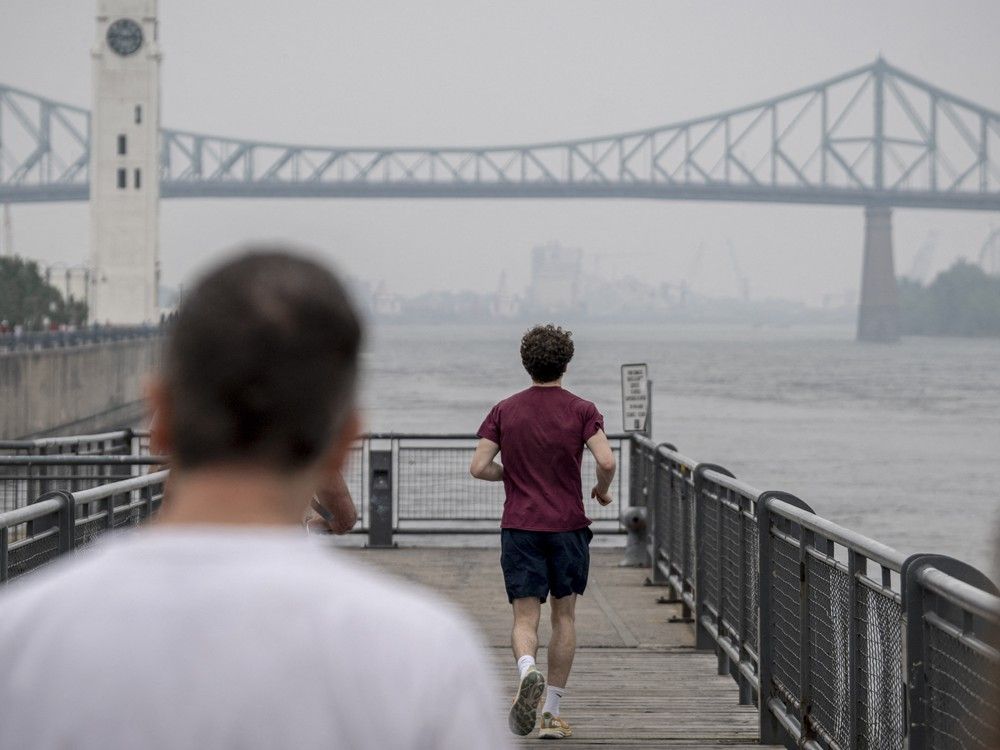Chris Selley: Send Kids Outside, for Heaven's Sake, Even If It's Smoky

Understanding Air Quality Challenges in Canada
Wildfires have become a significant concern across several regions in Canada, leading to poor air quality that affects both the general population and specific vulnerable groups. Environment Canada has provided guidance on how to manage these conditions, emphasizing the importance of recognizing individual sensitivities and taking appropriate precautions. This advice is especially crucial for seniors, infants, individuals who engage in outdoor physical activities, and those with pre-existing lung or heart conditions.
While Environment Canada's recommendations are practical and grounded in science, some media outlets have taken a different approach. The Toronto Star, for instance, has been criticized for its sensationalist coverage of the issue, often amplifying fears about the health risks associated with smoke exposure. On one particular day, the newspaper's homepage featured multiple articles warning readers about the dangers of smoke to their health, including the well-being of children.
One article raised the question of whether children should wear N95 masks during smoky days. According to Dr. Jeffrey Brook, an associate professor at the University of Toronto’s Dalla Lana School of Public Health, the current levels of smoke are not significantly different from what children experience in other parts of the world. He advised caution but cautioned against unnecessary panic. However, experts remain divided on the effectiveness of N95 masks for children, highlighting the complexity of the issue.
In contrast, the University of Alberta reported that Dr. Anne Hicks, a professor of medicine, recommends using respiratory protection like masks when there is no alternative to avoiding smoke. Similarly, Global News quoted Jamie Happy with Alberta Lung, suggesting that when the Air Quality Health Index (AQHI) reaches five or higher, people should consider limiting their time outdoors or wearing a mask. The AQHI reached eight in Toronto on one particular day, underscoring the severity of the situation.
The Toronto Star also cited Dr. Jennifer Green, a family physician, who expressed concerns about the use of N95 masks for children. She pointed out that these masks may not fit properly and are often not worn correctly, making them less effective. Her comments echo previous discussions about the challenges of mask usage, particularly during the pandemic, when some experts argued that masks were ineffective without proper training.
Despite these concerns, Dr. Green acknowledged that for children with underlying asthma, wearing an N95 mask could be beneficial if they must be outside. However, she emphasized the importance of keeping all children indoors as much as possible. This advice raises questions about the broader implications of such recommendations, especially given the recent impact of school closures during the pandemic.
The effects of prolonged school closures have been significant, with many children experiencing social and academic setbacks. Experts have noted that childhood experiences can have long-lasting effects on brain development, behavior, and overall wellbeing. In the UK, standardized test scores have declined, even though school closures were shorter than in Ontario and Quebec. This highlights the need for comprehensive support systems to address the educational and emotional needs of children.
In addition to concerns about air quality, the Toronto Star also published an article advising readers to close windows and even tape them shut to prevent wildfire smoke from entering homes. This advice, while well-intentioned, raises questions about the extent to which parents should go to protect their children. It is essential to balance precaution with practicality, ensuring that children can still enjoy outdoor activities and social interactions.
As the debate over air quality and public health continues, it is crucial to rely on evidence-based guidance rather than sensationalized reporting. Parents and caregivers should make informed decisions based on their children's specific needs and circumstances, while also advocating for policies that support the overall wellbeing of young people.

Post a Comment for "Chris Selley: Send Kids Outside, for Heaven's Sake, Even If It's Smoky"